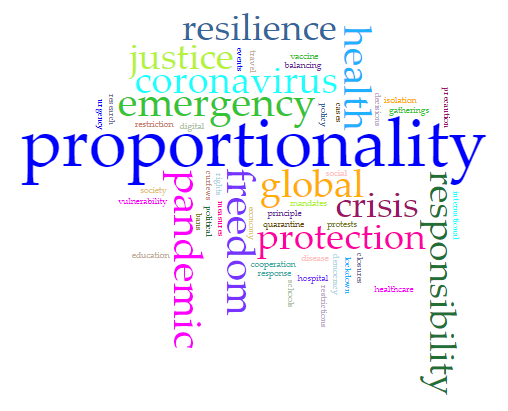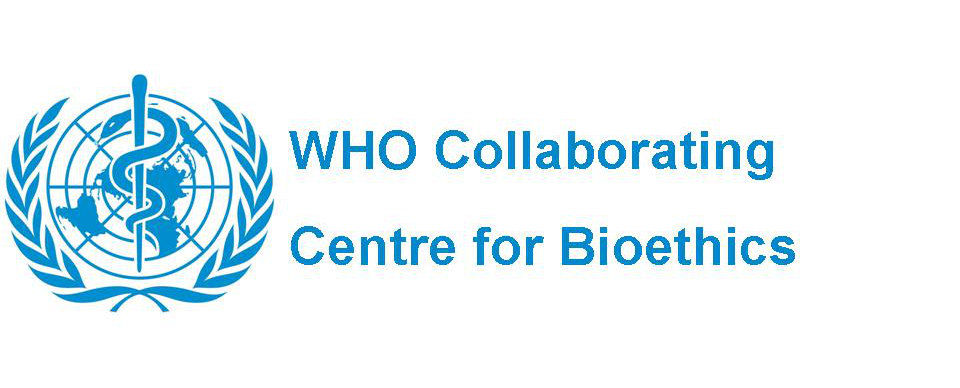Proportionality: A Guiding Principle in Public Health Law, Ethics and Policy in Times of Crisis

Deadline for expressions of interest for the edited volume: 14 April 2022
(for further instructions, please see below)
To prevent disease and death from COVID-19, many States have resorted to protective measures involving restrictions of civil, political, economic, social, and cultural rights unimaginable before the pandemic, e.g., curfews, travel bans, restrictions to private gatherings and public events, school and business closures. Political decisions had to be taken in a situation of emergency, characterised by high degrees of uncertainty, urgency, and conflicting policy interests.
In this context of large-scale restrictions of individual liberties and rights for the sake of public health, proportionality is a crucial issue. A thorough understanding of the principle of proportionality is thus essential for an ethical and legal appraisal of public health policy measures taken in reaction to the COVID-19 pandemic. Beyond the pandemic, it can also help in addressing policy responses to other major threats to public health, e.g., climate change, narcotic dependence, or multidrug-resistant bacteria.
Call for Case Studies
Description
For an interdisciplinary edited volume, we invite case studies which focus on the role of proportionality in public policy decisions or court cases relating to the COVID-19 pandemic. Case studies can discuss a policy in general (e.g., the policy of a specific country with regard to primary schools) or address the effect of a policy in an individual case (e.g., the experience of a clinical team with a hospital visit policy).
Possible themes include (but are not limited to):
- Restrictions to freedom of movement (e.g., lockdown measures; travel restrictions; curfews; quarantine and isolation);
- Restrictions to political rights (e.g., postponement of elections; restrictions to public protests);
- Restrictions to economic freedom (e.g., shop closures, work from home mandates);
- Restrictions relating to the healthcare system (e.g., cancellation of elective treatments; restrictions to hospital and nursing home visits);
- Effects of pandemic response measures on vulnerable groups;
- Vaccination requirements (e.g., vaccine mandates at the workplace or for the general public; vaccine passport mandates);
- Restrictions relating to education (e.g., school and university closures);
- Measures relating to medical research and drug authorisation;
- Digital health and digital surveillance (e.g., contact tracing apps);
- Prioritisation of healthcare resources (e.g., triage; vaccine distribution);
- Restrictions to private gatherings and public events;
- Mask mandates;
- Institutional framework for crisis management (e.g., crisis management at the local vs. State level; organisation of expert policy advice);
- Threats to public health aggravated by the COVID-19 pandemic (e.g., domestic violence; youth suicidality);
- Public perceptions of and lived experiences with pandemic response measures.
Aside submissions from academia from all disciplines related to the project (e.g., bioethics; law; philosophy; medicine; human, social and political sciences; economics; psychology), submissions from practitioners (e.g., legal professionals; policy analysts and advisors; clinical ethicists) are also very welcome.
Submission guidelines
In a first step, we invite expressions of interest by email to Julian März by 14 April 2022 (subject line: ‘Proportionality’). Please provide us with the following information:
- A short description of the case study you would want to elaborate, including information on the geographical scope and the methodology (e.g., literature-based; empirical research) (ca. 400 words);
- A short explanation of the relevance of proportionality in this case (ca. 200 words);
- A list of related works you have published or plan to publish (if applicable).
After initial editorial review, we will let you know if your proposed case study is of interest to the edited volume by 28 April 2022. We will then provide you with further instructions how to elaborate the case study (ca. 1,500 – 3,500 words) for publication in the edited volume. The final deadline for submission of the case study is 15 August 2022.
In addition, we will organise a webinar as part of our Forum for Global Health Ethics to give authors the opportunity to present and discuss their case studies (if wished).
Call for Case Studies (PDF, 123 KB)
